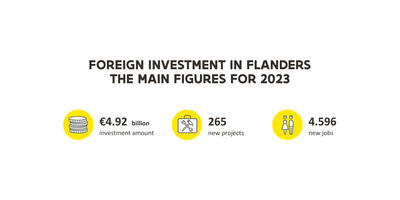
Under construction: new green hydrogen plant in Flanders

2.5 megawatts
The green hydrogen plant will be built on Terranova’s site in Zelzate (Flanders), where construction companies Jan De Nul, DEME and Aertssen remediated a historic landfill 10 years ago and turned it into a solar park with 55,000 solar panels. The new plant will have a capacity of up to 2.5 megawatts, including storage and a compression and filling station, with the possibility to be expanded to 5 megawatts.
This is a nice step forward in the transition from fossil fuels to a green energy hub in the Ghent port area.
We notice an increasing demand from our customers for relatively small quantities of green hydrogen for use in existing processes and for testing and scaling up new techniques to switch to non-fossil fuels and raw materials.
Backed by Flanders' government
Construction work should start in the second half of 2023, while production is planned to kick off in early 2025. The project is backed by a grant of EUR 4.33 million from the government of Flanders, which sees the project as fitting into the region’s ‘hydrogen vision’. The remaining funding will be provided by the three project partners.
The goal of this collaboration is to set up an innovative and sustainable project to produce green hydrogen on a limited scale with locally generated green electricity.
Adding to other efforts
The new green hydrogen plant also fits into the strategy of North Sea Port, one of Flanders’ leading seaports, which has the ambition to become a hydrogen hub in Europe. The port expects the market demand for hydrogen to double by 2050 and therefore decided to build various hydrogen plants by 2025.
Previously, Equinor and Engie also announced plans to produce hydrogen on a large scale at North Sea Port. For that purpose, they want to make blue hydrogen from natural gas, capture the CO₂ released in the process and transport it to Norway through a pipeline to store it in the North Sea.


